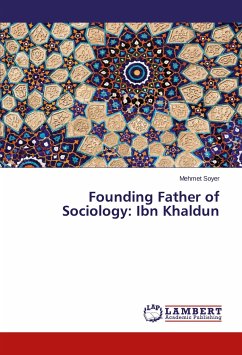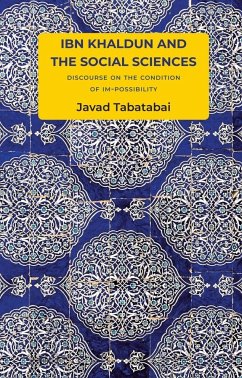
Founding Father of Sociology: Ibn Khaldun
Versandkostenfrei!
Versandfertig in 6-10 Tagen
36,99 €
inkl. MwSt.

PAYBACK Punkte
18 °P sammeln!
This study examines the extent to which Khaldun can legitimately be considered a founding father of sociology. To pursue this contention, Khaldun's theoretical framework will be compared with four Western scholars: Auguste Comte, Emile Durkheim, Giambattista Vico, and Ludwig Gumplowicz. These prominent Western scholars were chosen for particular reasons. Auguste Comte was selected as he is often regarded as the founder of sociology. Durkheim was selected because of his position as founder of modern sociology and sociological methodology. Vico was chosen because he is generally regarded as the ...
This study examines the extent to which Khaldun can legitimately be considered a founding father of sociology. To pursue this contention, Khaldun's theoretical framework will be compared with four Western scholars: Auguste Comte, Emile Durkheim, Giambattista Vico, and Ludwig Gumplowicz. These prominent Western scholars were chosen for particular reasons. Auguste Comte was selected as he is often regarded as the founder of sociology. Durkheim was selected because of his position as founder of modern sociology and sociological methodology. Vico was chosen because he is generally regarded as the founder of the modern philosophy of history and Gumplowicz was selected because of his position as the founder of conflict sociology. The paper begins with an Introduction, followed by a general overview of Khaldun's work. His work is compared to that of Auguste Comte, Emile Durkheim, Ludwig Gumplowicz and Giambattista Vico. In each section, Khaldun is compared and contrasted to the other social theorist, illustrating their similarities and considering their differences. I put forth conclusions that consider the extent to which Khaldun can validly be considered a founding father of sociology














